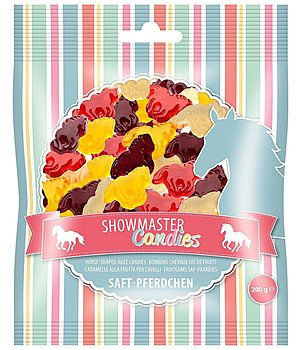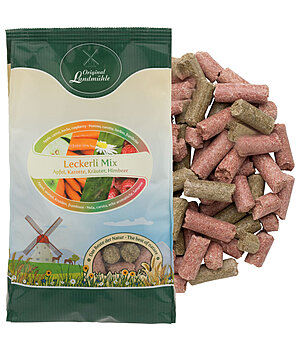Horse feed and supplements guide
1. Feeding horses – the basics
The horse’s digestive system is very complex and highly sensitive. Diet-related colic and metabolic diseases that can result from incorrect feed management, are relatively common in horses. However, there are a few basic rules in horse nutrition that can avert diet-related diseases.
Everything you need to know about the classification of feed, horse metabolism and feed plans can be found in this guide.
Learn more

2. Which hard feed and roughage does my horse need?
Roughage in the form of high-quality hay is the foundation for any horse-friendly feeding. Roughage not only fills the horse up, but also provides nourishment for the microbes in the large intestine. If the horse’s energy needs cannot be covered by the hay ration, a concentrate can be fed.
But which is better – oats, mixes or cubes? And is there a suitable hay substitute? In this guide we explain this.
Learn more3. Which mineral supplement does my horse need?
Overuse and monocultures have washed out the land, which is why it is very low in minerals. As a result, hay and oats are no longer rich in nutrients. Therefore, the horse’s mineral supply can no longer be covered by hay and oats alone. A targeted supply of nutrients with a high bioavailability via a mineral supplement is indispensable for the horse and its health.
Read here which mineral supplement your horse needs and that they are not always the same.
Learn more

4. Which supplements does my horse need?
The supply of minerals via a basic vitamin and mineral supplement is not always sufficient. There are phases in a horse’s life when the need for certain nutrients increases dramatically, be it during growth, breeding, athletic exertion or other stress. But horses also have an increased need for trace elements and vitamins in the winter.
So that you don’t lose track of the wide range of supplements, we will show you in this guide which type is the right one for your horse.
Learn more5. Treats for horses – more than just a reward
Chewing has a relaxing effect on the horse’s jaw and neck. After an exciting or stressful situation, horses chew to process what has happened. This effect can be used in training: by giving a treat, the horse is encouraged to chew and can thus process and internalise what it has learned more easily.
If treats are used correctly, they can bring significant added value to training. It is not only the correct time when the treat is given that is important. There are also certain requirements for the treat itself. You can find out what these are in this guide on treats for horses.
Learn more

6. FAQ about horse feed
Hay should be the basic feed for every horse. Ad-lib hay feeding is becoming more and more popular and is presented as extremely horse-friendly. But is hay around the clock really suitable for every horse? Which herbs can support the horse in maintaining its health? Are vits and mins supplements still necessary if the horse has a salt lick at its disposal? Does the trend towards „molasses-free feed“ really make sense? And how long can feed be stored?
You will find answers to these and even more questions in our detailed FAQ on horse feed.
Learn more

